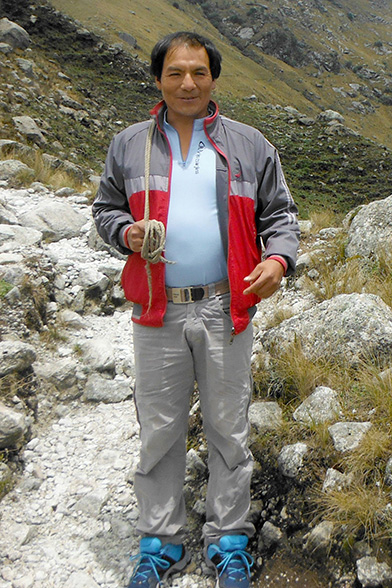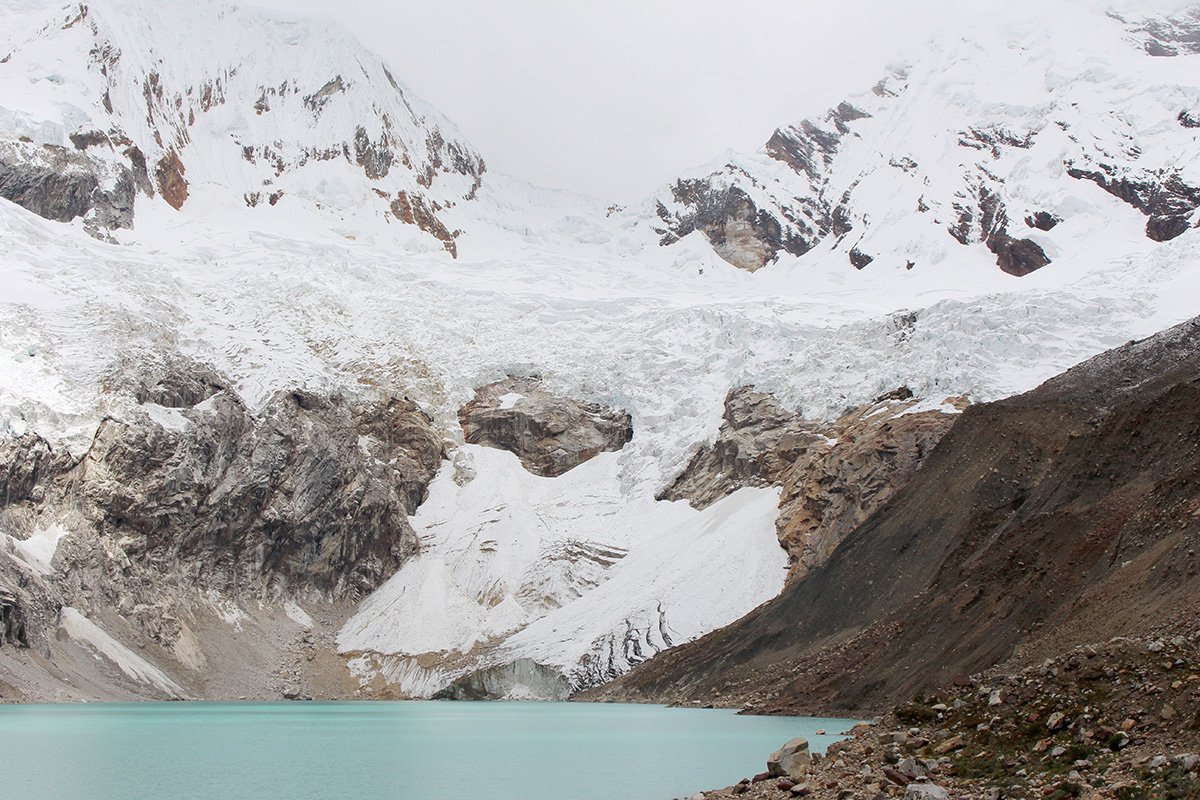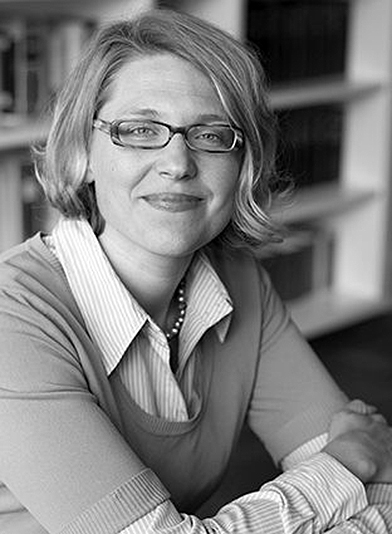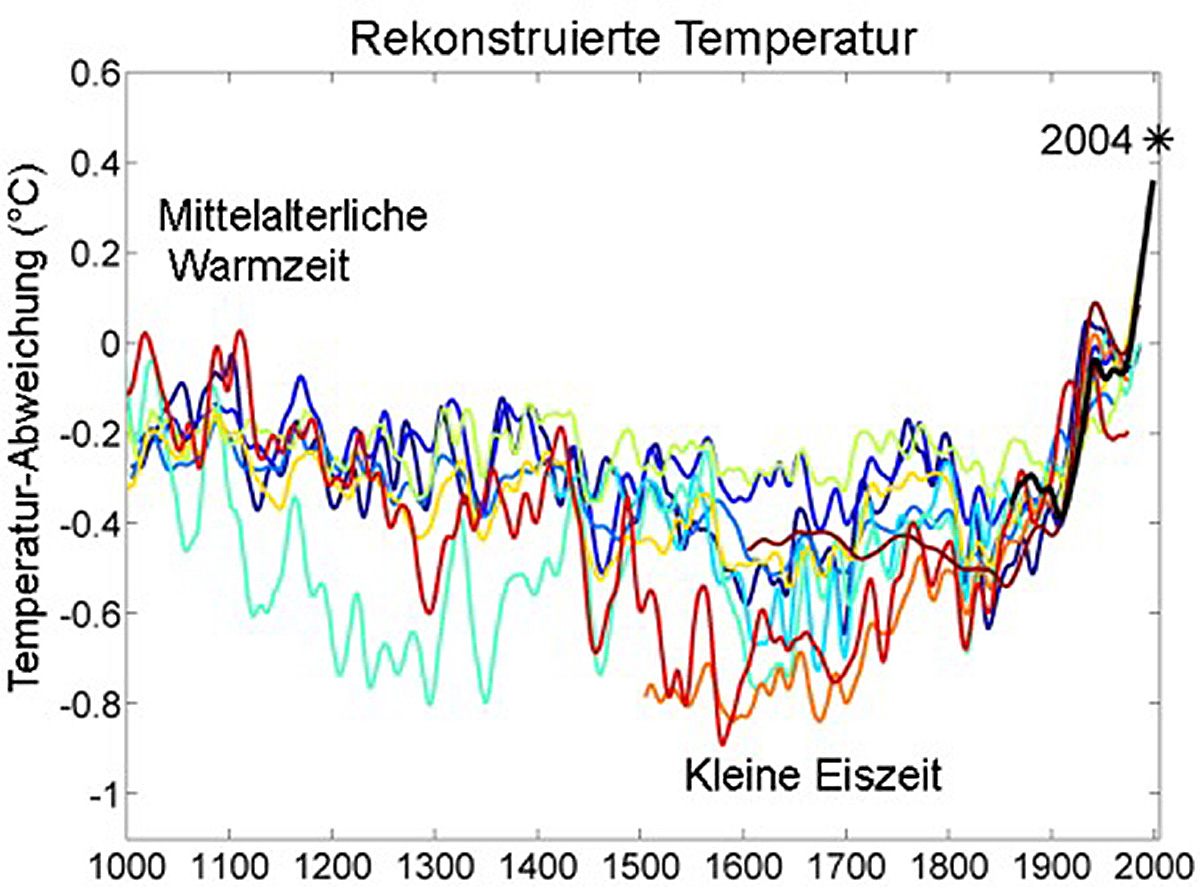Climate data as evidence
How is the influence of humans on the climate proven, and which ethical and legal consequences does this entail? Top-class speakers will address these questions at this year’s Hans Sigrist Symposium organised by the Oeschger Centre for Climate Change Research and the Hans Sigrist Foundation to be held on 2 December at the University of Bern.
The case of a Peruvian farmer that will be tried on 24 November before the district Court in Essen may write judicial history. Saul Luciano Lliuya is suing the German electricity giant RWE because of the CO2 emissions which the company causes through its coal-fired power plants. A glacier above the city of Huaraz in the Andes is melting. Among other things, its meltwater endangers Lliuya’s house, and RWE is said to be complicit in this. Now the farmer is demanding that the corporation pays for the protective measures which he has taken against the consequences of climate change. Matter of cost: 6,500 Swiss francs (converted).


It is thanks to his lawyer Roda Verheyen that Saul Luciano Lliuya is going to court in Germany and that his lawsuit was accepted at all. Up to now such lawsuits were always dismissed, because it is difficult to prove a company’s concrete guilt.

Roda Verheyen is a lawyer in Hamburg specialising in the field of environmental and international law. She cofounded the international network for climate law known as the Climate Justice Programme, and she will be among the half dozen prominent speakers at the Hans Sigrist Symposium 2016, that will be held on 2 December at the UniS (Old Maternity Hospital). Roda Verheyen will introduce the red-hot case study Lliuya vs. RWE in her lecture.
Human influence on climate is clear
The event organised by the Oeschger Centre for Climate Change Research is entitled «The Human Fingerprint on the Earth System» and covers a wide range of topics from basic research to tangible importance of these results – not least for climate lawsuits. «In the last report of the Intergovernmental Panel on Climate Change (IPCC) it is written that the human influence on climate is clear. We want to show which scientific principles make such an unambiguous statement possible at all», says Martin Grosjean, Director of the Oeschger Centre, «and we want to discuss which ethical, societal and legal consequences ensue as a result.»
Research has emphasised the role of humans in current climate change ever since the publication of a graph in 1999 which shows the rapid increase of the greenhouse gas CO2 since the 1950s. Because of its steeply ascending form it became famous as the hockey stick graph.

One of the authors of the study which takes the graph as a basis is Raymond Bradley from the Climate System Research Center at the University of Massachusetts. He will be giving the opening presentation at the Hans Sigrist Symposium. Title: «Climate Variations and Forcing since Early Medieval Time, and our Return to the Dark Ages». Bradley is among the well-known American climate researchers who were subjected to great political pressure in recent decades and was even threatened with death.
Cognition and classification of climate change
Up until about 15 years ago it could not be exactly said to what extent man is responsible for climate change, since the climate also changes because of natural driving forces. Among other things, this includes solar activity and volcanic eruptions. One of the pioneers with regard to attributing and evaluating the various climatic factors is Gabriele Hegerl from the University of Edinburgh. She will be speaking in Bern about the quantification of human influence on the climate system. Erich Fischer from ETH Zurich is also another speaker who carries out research in this field. «Three-fourths of observed global warming since 1950 is manmade», he says. Fischer is co-author of a study which shows that even today three-fourths of all heat extremes and nearly one-fifth of all precipitation extremes are attributable to global warming – and a predominant part is thereby attributable to humans.
New legal territory: climate lawsuit
The IPCC reports not only serve as a scientific basis for climate policy, as of late they are also cited for argumentation in climate lawsuits in court. For example, during a 2015 lawsuit brought before civil court in The Hague, the Dutch state was obligated to more severely reduce the emission of greenhouse gases as politically resolved. The Urgenda Foundation about 900 individual plaintiffs had pursued the lawsuit. In Belgium and Norway there are similar plans, and stronger climate change mitigation shall also be argued before court in Switzerland. A group of women at the age of AHV (old age & survivors’ insurance) retirement, who argue that they are quite strongly affected by the heatwaves to be anticipated as a consequence of climate change, intend to file a lawsuit. The association known as «Verein Klimaseniorinnen» is entering new legal territory in Switzerland.
Hans Sigrist Symposium 2016

The symposium «The Human Fingerprint on the Earth System» is supported by the Hans Sigrist Foundation, which has devoted itself to the promotion of science and annually awarded a research prize endowed with 100,000 Swiss francs since 1994. The occasion on 2 December at the UniS is public and free. Registration is requested.
THE OESCHGER CENTRE FOR CLIMATE CHANGE RESEARCH (OCCR)
The Oeschger Centre is the competence centre for climate research at the University of Bern. It was founded in summer 2007 and is named after Hans Oeschger (1927-1998), a pioneer of modern climate research who was active in Bern. The Oeschger Centre brings together researchers from nine institutes and four faculties, and carries out disciplinary and interdisciplinary research on the front line. Only the cooperation of natural, human and social sciences as well economics and jurisprudence can demonstrate ways to confront global climate change on the most varying levels: regionally anchored and globally linked.
ABOUT THE AUTHOR
Kaspar Meuli is a journalist and PR consultant. He is responsible for communication at the Oeschger Centre for Climate Change Research.